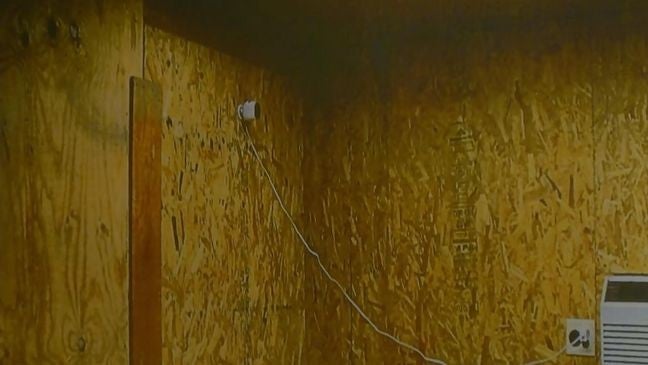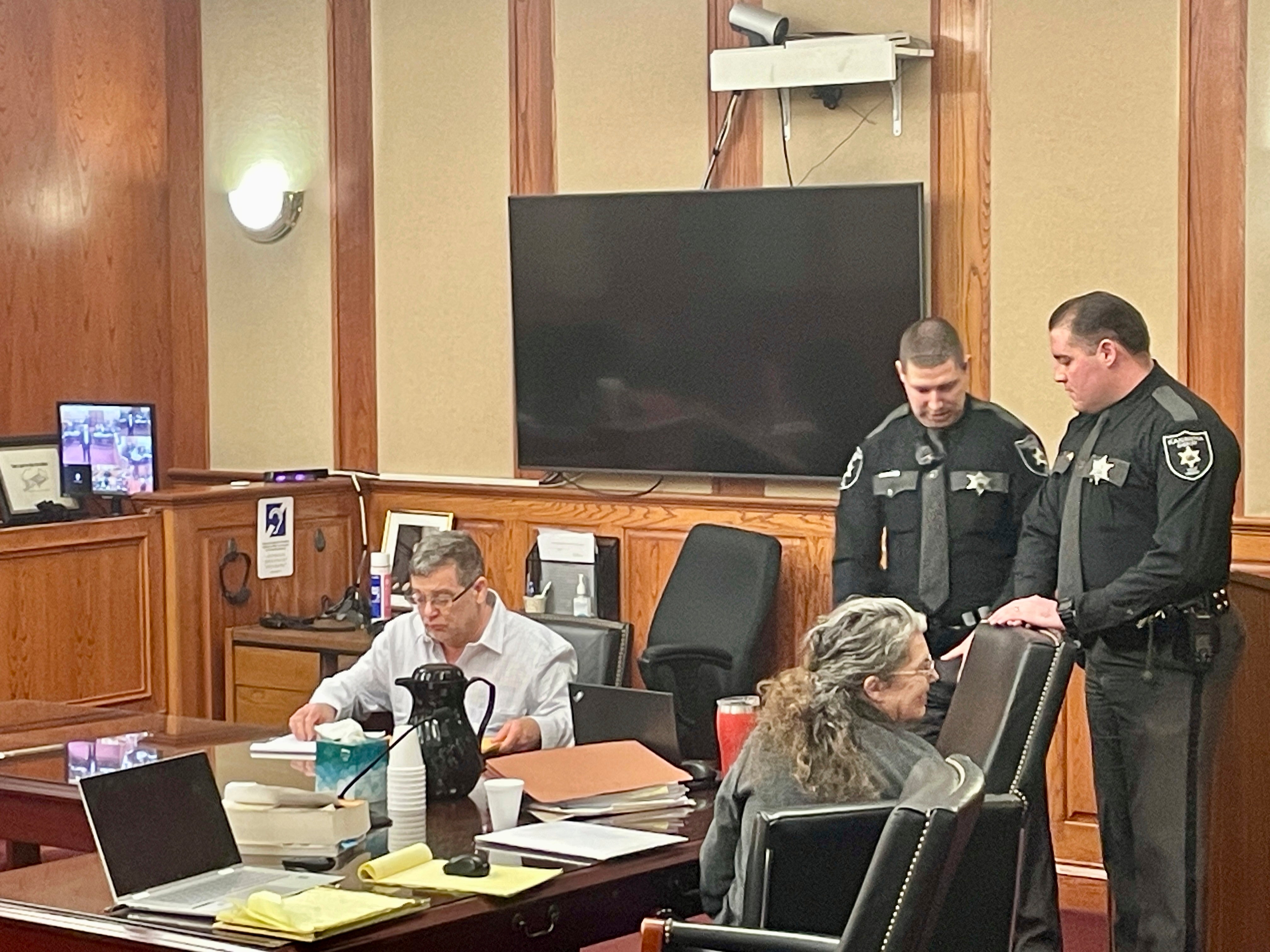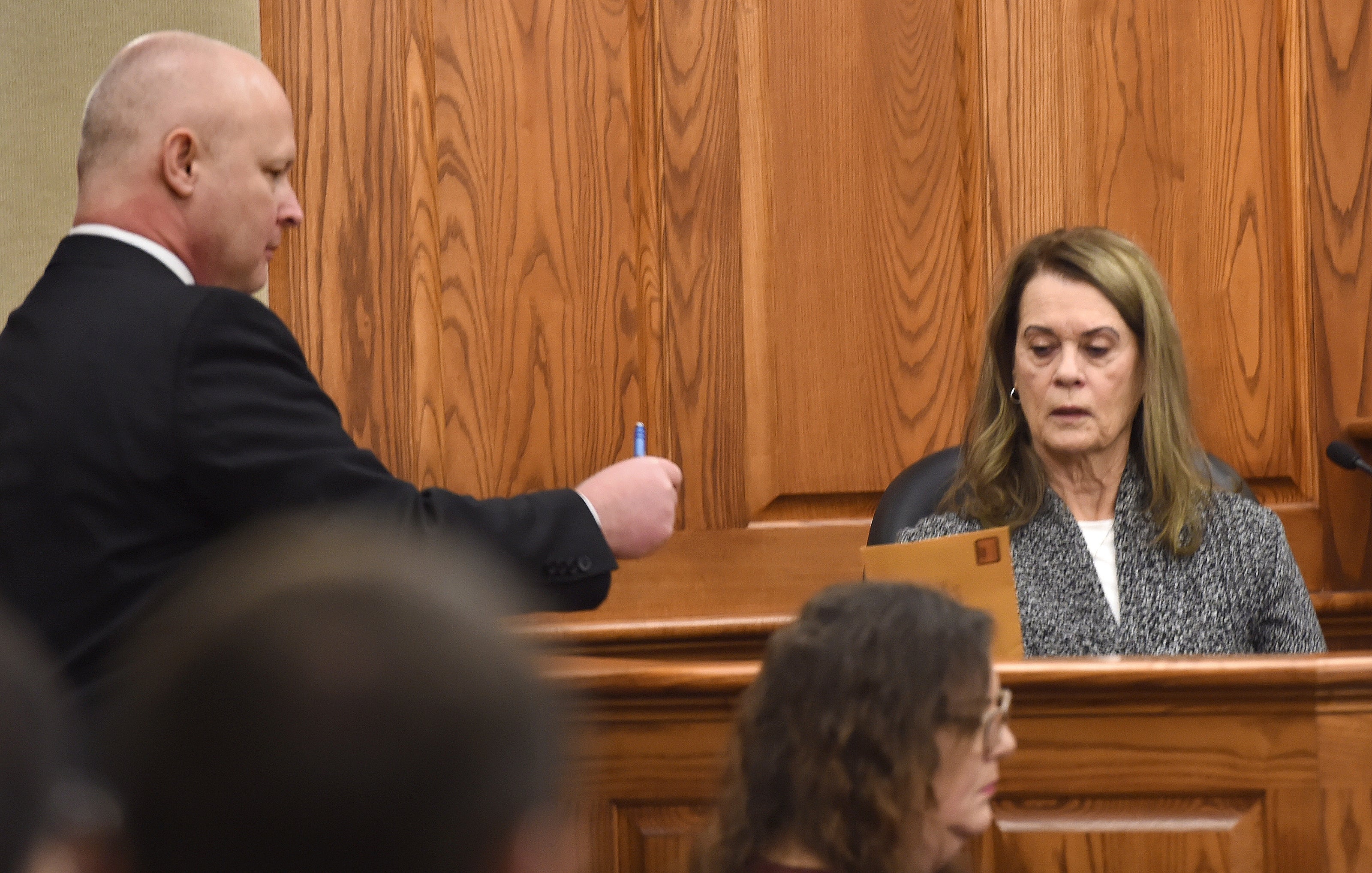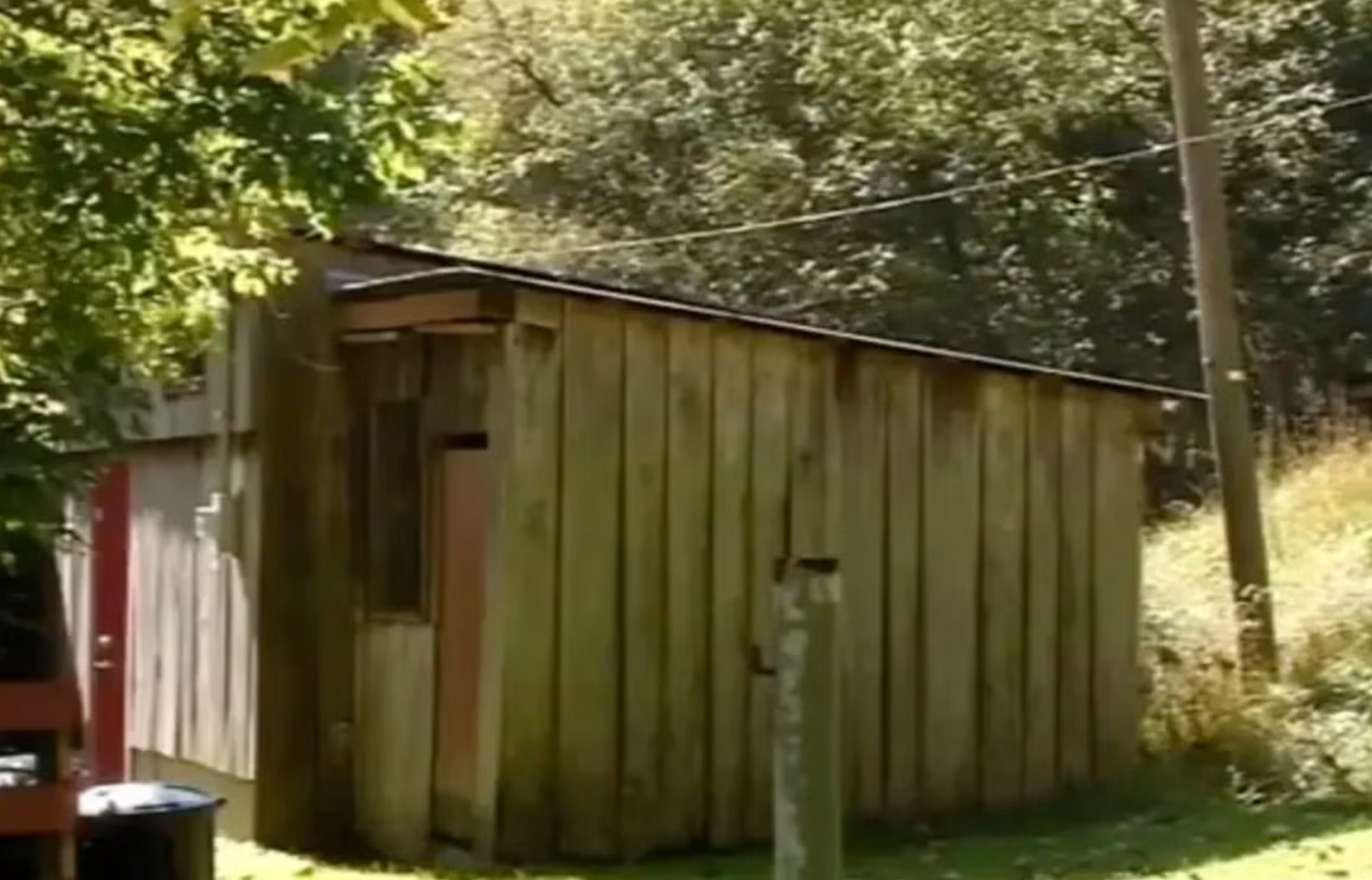White mother accused of treating Black adopted kids as ‘slaves’ said they liked being kept in barn, trial told
Jeanne Whitefeather, 62, and Donald Ray Lantz, 61, are charged with human trafficking, child abuse and forced child labor
A West Virginia mother who is accused, along with her husband, of treating their adopted Black children as “slaves,” told law enforcement that they liked being kept in the barn.
The trial of Jeanne Kay Whitefeather, 62, and Donald Ray Lantz, 61, continued Wednesday in Kanawha County Circuit Court.
They were arrested in October 2023 after two of their five adopted children were found locked in a shed outside their Sissonville home, near Charleston. The parents, who are white, face more than a dozen counts including forced labor, civil rights violations, human trafficking and gross child neglect. The children, all siblings ranging in age from 5 to 16, are Black.
Day two of testimony began with Deputy Hannah Burdette who responded to a 911 call from a concerned neighbor on October 2, 2023, claiming two teenage children were locked in the barn.
Burdette testified that she communicated with the children and when she discovered that they had no access to running water or any way of getting out, she made the decision that deputies would force their way in.

Detective Robert Alford, who was the second witness to testify on Wednesday, arrived to help and used a sledgehammer to break the lock, he said.
Once the door was open, Burdette told the court that she remembers being struck with a wave of heat and the strong smell of body odor.
During cross-examination, Burdette said a key was later found inside the shed.
“To my knowledge, a key was found on top of the cabinet,” she said.
Neither parent was home when deputies first arrived on the scene, but when Child Protective Services was able to get in touch with Whitefeather, Burdette said she told her the teens “liked it” in the barn.
When Whitefeather arrived home, she “didn’t really understand” why the police were there, Detective Alford testified.

Photos taken by Detective Alford were shown in court Wednesday that revealed the inside of the shed, which had concrete floors, plywood walls, an A/C unit that was not plugged in, metal chairs, a small table and a camper toilet.
The court also viewed videos taken by neighbors of the children working in the yard for hours on end and heard two 911 calls for welfare checks.
In her opening statement on Tuesday, assistant prosecutor Madison Tuck said evidence presented during the trial will show the couple forced the children to work and used them “physically, emotionally and mentally so that they would comply.”
She said text messages between Lantz and Whitefeather mentioned making the children stand for long periods of time and locking the two older children, both teenagers, in the outbuilding.
However, Whitefeather’s attorney, Mark Plants, said the case “is about adoptive parents struggling to deal with their children’s past trauma and severe mental illness.”

He said friends and relatives of Whitefeather will testify that four of the children suffered “physical, sexual and emotional” abuse by their biological mother, including what he said was the mother’s use of alcohol and drugs while she was pregnant.
“This is a normal family,” Plants said. “They have Christmases. All of them. They have Christmas presents. They have family vacations. They sit around dinner tables and eat.”
The couple adopted the five siblings while living in Minnesota and moved to a farm in Washington state in 2018 before moving again to West Virginia in 2023, when the children ranged in age from 5 to 16.
Neighbor Joyce Bailey testified Tuesday that when the family first arrived at the home in Sissonville, West Virginia, in 2023 in a vehicle pulling a trailer for animals, it was raining and the children were told to line up outside.
“You never see them talk to each other,” she said. “They didn’t talk at all among themselves. You didn’t see them out unless they were working. They never played.”

Bailey became emotional several times in describing what she said was the difficulty some of the children had in carrying fencing for the animals, propane tanks, full buckets of water and other supplies between the home, a trailer and a barn as Lantz watched.
“He made them carry it all, that heavy fencing,” Bailey said as they showed video she took of the forced labor. “They would just stand there and wait for him to tell them what to do.”
Bailey said she also witnessed the oldest boy carrying a propane tank. The boy “could barely walk. He acted like his feet were so sore. He was dragging them,” Bailey said. “Mr. Lantz was just standing there. He never said anything, not helping him.”
Bailey said “it was tearing me up,” so she started to take video. When Lantz looked over at her, Bailey said, her husband told her to stop filming, but she continued, replying, “I don’t care.”
In September 2023, the couple bought a bigger house in Beckley and started moving furniture out of the Sissonville home. A month later, Bailey said, she saw Lantz lock the two teenagers in the outbuilding and leave the property.
Whitefeather left a short time later. Someone called police, and Bailey said she saw sheriff’s deputies knock on the outbuilding door for several minutes. A girl answered but indicated she didn’t have a key. Bailey said she could hear the deputy talking to the girl, then used a crowbar to get the children out.

A deputy said in a criminal complaint that the children were in dirty clothes and that the oldest boy was barefoot and had what appeared to be sores on his feet. Inside the main residence, a 9-year-old girl was found alone crying in a loft with no protection from falling. A fourth child was with Lantz when he eventually returned. Deputies were later led to the couple’s 5-year-old adopted daughter.
Whitefeather and Lantz were arrested and the children were placed under the care of Child Protective Services
According to the complaint, the children had been deprived of adequate food and hygienic care, and the outbuilding had no running water or bathroom facility. Plants has referred to the outbuilding as a “teenage clubhouse” and said there was a key inside. But Tuck said the children never knew about a key.
Plants said the oldest boy had attempted to run away from home and that the lock on the outbuilding was aimed at keeping him from trying it again. The boy is currently receiving full-time care in a psychiatric facility.

